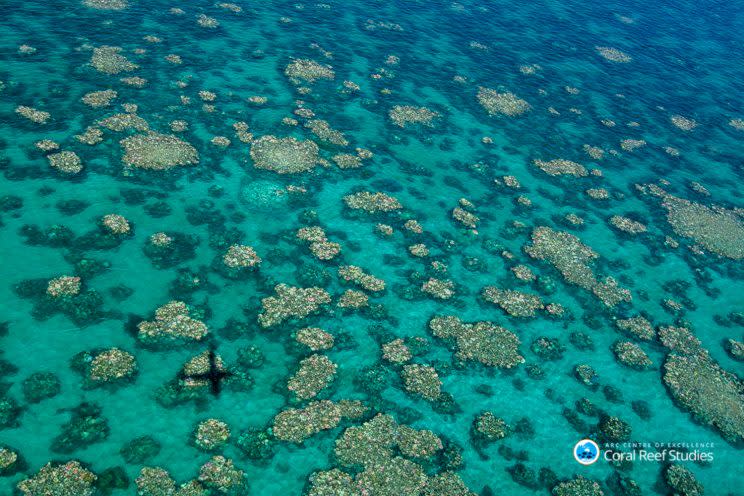'Unprecedented' bleaching causes damage to two-thirds of Great Barrier Reef
Two severe coral bleaching events have damaged about two-thirds of the Great Barrier Reef, scientists have revealed.
Aerial surveys by the Australian Research Council’s Centre of Excellence for Coral Reef Studies revealed the scale of the destruction after two similar incidents happened within a year.
The occurrences of mass bleaching, caused by global warming-induced rises to sea surface temperatures, have caused “unprecedented” damage, according to experts.
It happens when corals under stress drive out the algae known as zooxanthellae, which give them colour.
The bleaching has affected a 1,500km stretch of the Great Barrier Reef, the largest living organism on Earth, with only its southern third unaffected.
The reef, found off the coast of Queensland, Australia, and considered one of the seven natural wonders of the world, has suffered four bleaching events since 1998, when scientists began monitoring it.

Last year’s bleaching was concentrated in the reef’s northern third, but the 2017 event spread further south.
Professor Terry Hughes, who led the surveys, said coral needs at least 10 years to recover.
“The significance of bleaching this year is that it’s back to back, so there’s been zero time for recovery,” Hughes told the Guardian.
MORE: Five of the weirdest (and worst) ways to die, by scientists
MORE: A Twitter world record is on the verge of being broken – by chicken nuggets
“It’s too early yet to tell what the full death toll will be from this year’s bleaching, but clearly it will extend 500km south of last year’s bleaching.”

He added to the BBC: “Since 1998, we have seen four of these events and the gap between them has varied substantially, but this is the shortest gap we have seen.
“The sooner we take action on global greenhouse gas emissions and transition away from fossil fuels to renewables, the better.”
Researcher Dr James Kerry said that the damage was unprecedented.
“The central third this year, I would say, was as severe in terms of bleaching as what we saw as the northern third last year,” he told the BBC.
“For those reefs that were hit two years in a row, it is effectively a double whammy. They have had no chance to recover from last year’s events.”
The latest damage happened without the presence of El Niño, a climate cycle that has been associated with bleaching events.
The reef was given World Heritage status in 1981. It is described by the UN as the “most biodiverse” of all such sites, and of “enormous scientific and intrinsic importance”.

 Yahoo News
Yahoo News 


